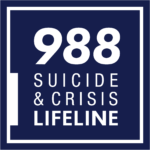Psychological Evaluations
If your child has been referred for psychological testing, you probably have some questions about what to expect. Psychological testing sounds intimidating, but it is simply a tool to measure a person’s behavior to arrive at a diagnosis and guide treatment. Just like a medical doctor uses imaging or lab work to understand what is causing physical symptoms, a psychologist uses tests and other assessment tools to understand what is causing behaviors or emotions that are concerning. Essentially, psychological tests are problem-solving tools to help you and your child better understand your child’s strengths and struggles so they can better meet life’s challenges. They are used to diagnose a range of conditions, including anxiety disorders, mood and depressive disorders, and conduct/behavioral disorders.
What are the signs that a psychological evaluation might be needed?
- Dramatic sleep and appetite changes or decline in personal care
- Rapid or dramatic shifts in emotions or depressed feelings
- Social withdrawal and loss of interest in activities previously enjoyed
- An unusual drop in functioning at school or in social activities (e.g., quitting sports, failing in school)
- Problems with concentration, memory, or logical thought that are hard to explain
- Loss of initiative or desire to participate in any activity
- A vague feeling of being disconnected to oneself or one’s surroundings
- Nervousness or exaggerated fears
- Odd, uncharacteristic, peculiar behavior
One or two of these symptoms alone cannot predict a mental health condition but may indicate a need for further evaluation. Often, a child’s emotions are completely natural responses to situations they find themselves in. But when emotions start to cause serious problems in the ability to study or relate to others, your child should be seen by a mental health professional.
People with suicidal thoughts or intent or thoughts of harming others need immediate attention.

What does a psychological evaluation look like?
Each psychological evaluation plan is designed based on your child’s specific needs and will rely heavily on clinical interviewing and norm-referenced rating scales. Other tests and procedures will be added as they are relevant.
You can expect the actual test session with your child to last anywhere from 1 to 2 hours. After all information is gathered and the report is written, a feedback session will be scheduled to review the results with you (and with your child when this is appropriate) and to make referrals to other specialists for treatment, if indicated.
Psychological evaluations require openness and honesty on the part of everyone involved. Dr. Ensign works hard to develop a good working relationship with children and adolescents so they feel comfortable to engage in the process. It is understandable to feel some hesitation and be wary of initiating a process like this – please call for a FREE phone consultation with Dr. Ensign to see if Monarch is a good fit for you and your child’s needs.
**************************
There is NO WAIT LIST at this time for testing appointments.
Call now to schedule an appointment or a FREE phone consultation with Dr. Ensign.
**************************
Proudly serving all of Brevard County and beyond
Rockledge, Melbourne, Viera, Merritt Island, Cocoa, Cocoa Beach, Cape Canaveral, Port St. John, Titusville, Mims, Palm Bay, Malabar, Indialantic, Eau Gallie, Patrick Space Force Base, Satellite Beach
